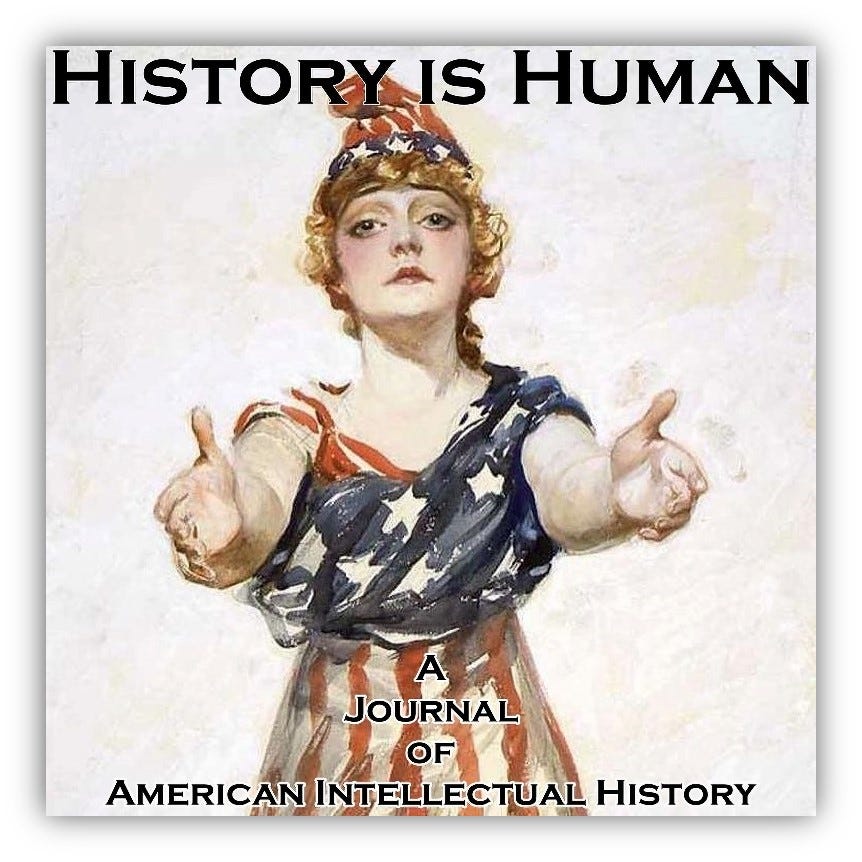History is Human Preview: Herbert Hoover’s Theory of Using Food Supply to Create Global and National Stability, 1914-1964 (Part One of a Three Part Series)
Guest Contributor: Brian D. Reese
[The following passages are a preview from the History is Human Journal, from the first of a three part series by historian, Brian D. Reese. You can read the first installment in full for free here. Please consider becoming a free or supporting subscriber to History is Human here. Help us make history!]
In the November-December 1942 issue of Collier’s Magazine, Herbert Hoover wrote, “A weak government possessed of the weapon of food for starving people can preserve and strengthen itself more effectively than by arms.”[1] The sixty-eight year old, former U.S. president made this statement, and numerous others, within the dark depths of the Second World War, and during the height of a tenuous global outlook. Hoover championed the idea of using food as a superior weapon instead of military power, not only during the war against the Axis powers of Japan and Germany, but as a long-term weapon of lasting peace, a philosophy he had by then maintained for decades. “There are more Horsemen that follow modern war than at the time that the Apocalypse was written,” Hoover alluded earlier in the same article. “In modern total war Famine and Pestilence are accompanied by four new recruits whose names are Revolution, Unemployment, Suspicion and Hate. These additional destroyers make the job harder to manage.”[2]
Referring to the lead that America could take in promoting food as a better defense against short and long-term perils in the Collier’s article and many other writings, both public and private during the war, was not a new concept for Hoover. He had gained notorious fame twenty-five years previous for actions taken during the First World War, stepping in and organizing famine relief to thousands of isolated Belgians, soon to become the first and only United States Food Administrator for the remainder of that conflict. This theory of using food to strengthen a nation, during and after a war, indeed had not been specifically conceived only while living his pre-political life. Yet Hoover stood out as someone who among many contemporaries of the coinciding Progressive Era, could effectively implement the strident goal to use food for leverage or influence towards a long-term focus on peaceful aims and stability. The idea of promoting the stability of nations and their people, alongside world peace, using the medium of adequate food supply to counter negative results in the absence of it, had become central to Hoover’s goal. He would not use this concept to advance the political aims of himself or others, and contrary to other views, used political, business, and person experience, ideals and efforts to promote, encourage and intentionally advance the sue of food instead of arms to counter the evil threats of war and its lingering attributes.
Memoirs, essays and letters by Hoover and other involved figures, as well as newspaper accounts of the period, help to illustrate this viewpoint. In addition, various leading historians such as Gary Dean Best, David Burner, Richard Norton Smith, and Joan Hoff Wilson offer thorough biographical accounts of Hoover, along with interpretations of how using food to promote stability and long-term peace became such an important lifelong goal. These historians, and various primary sources also assist in forming an understanding of how Hoover stood out and differed from traditional perspectives of that period, often seeming out of place despite success, or political challenges and failures, in the changing global political dynamics before and after the Second World War. Other historians like Bruno Cabanas, Nick Cullather, and Michael E. Latham offer perspectives and interpretations of the history of humanitarianism, both past and current hunger need issues, as well as the significance of certain figures and others during Hoover’s lifetime, and since, who have influenced that narrative.
[Read the full first installment by historian, Brian D. Reese here.]
Please consider becoming a free or supporting member of the History is Human community here. Help us make history!
Notes:
[1] Herbert Hoover, “Food Supplies for This War,” in Addresses Upon the American Road by Herbert Hoover, World War II 1941-1945 (New York: D. Van Nostrand Company, Inc., 1946) Radio Address, NBC, New York, New York, January 21, 1943. 295.
[2] James B. Reston, “Country Has Food ‘Deficit’ Hoover Warns in Farm Plea: U.S. Must Strengthen Agricultural Front or Fail as Germany Did in 1918, He Says-Give Post-War Formula,” New York Times, March 16. 1943, 1.





